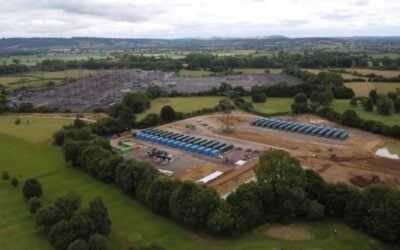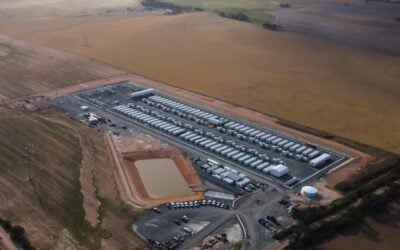Prominent ‘Leave’ campaigner Nigel Farage, who has admitted to making false promises in his campaign the day following the result, as widely reported in the British media and on social networks.
The United Kingdom’s decision by referendum last week to exit the European Union has been received negatively by one of the few commentators prepared to go on record with a UK industry view.
Hunt, a specialist recruiter in renewable energy and chair of the Renewable Energy Association, was at the Intersolar Europe trade exhibition and conference when news broke. He said the negative impact was likely to be felt globally, as well as in the UK.
Enjoy 12 months of exclusive analysis
- Regular insight and analysis of the industry’s biggest developments
- In-depth interviews with the industry’s leading figures
- Annual digital subscription to the PV Tech Power journal
- Discounts on Solar Media’s portfolio of events, in-person and virtual
“The Brexit vote was a shock when the result became clear Friday morning; most Brits in Munich that morning at Intersolar/EES were aghast and somber.
“Already we are seeing some significant ramifications, mainly around finance and currency values. The impact could be swift, I’ve been made aware of one project involving three big names in the sector that, due to currency costs, may now be stalled or reigned back in scale,” he added.
Hunt went on to make a number of predictions on production cost for residential storage systems, the impact on planned European Interconnectors. He also said it would make uncertain the future of the proposed Hinkley nuclear plant, which could also impact on the competitiveness of new gas plants.
“Let’s hope for a swift conclusion to negotiations, in the meantime it looks like a tough time to do business in the UK.”
In the wake of the result, there have been immediate calls for some form of investment certainty for UK clean energy from the Aldersgate Group and the REA, a UK renewable industry trade body.
Nick Molho, executive director at Aldersgate Group, warned that it would be imperative for the UK to continue to engage in the financing of a transition to a low-carbon economy.
“Environmental and low carbon economy issues were largely overlooked during the EU referendum campaign… Today, its [the UK’s] low carbon and renewable energy economy has a turnover in excess of £46 billion, employs over 238,000 full time workers directly and British businesses are leading exporters of clean technologies such as ultra-low emission cars.
“With serious environmental issues facing the world and with low carbon investment rapidly growing globally, it is in the UK’s economic and environmental interest to engage positively in international negotiations on climate change and other environmental and support the growth of its low carbon economy through national policy,” he said.
Molho concluded by arguing that a “robust carbon plan” must now be among the “essential priorities” for the government, echoing similar calls from Renewable Energy Association chief executive Nina Skorupska CBE.
“This result raises serious questions for investor certainty, energy security and much needed investment in the UK energy infrastructure,” Skorupska said.






